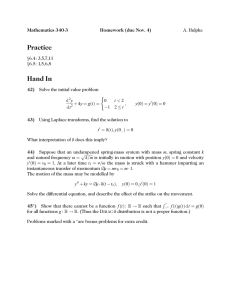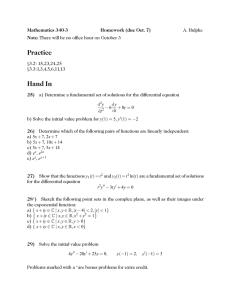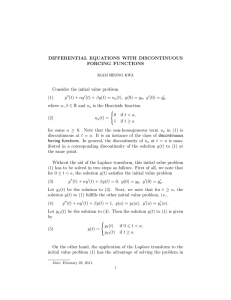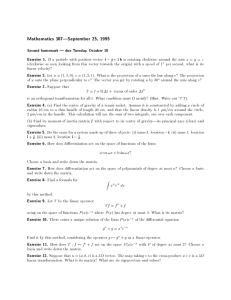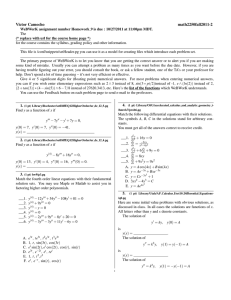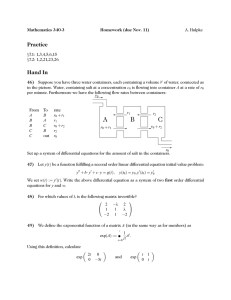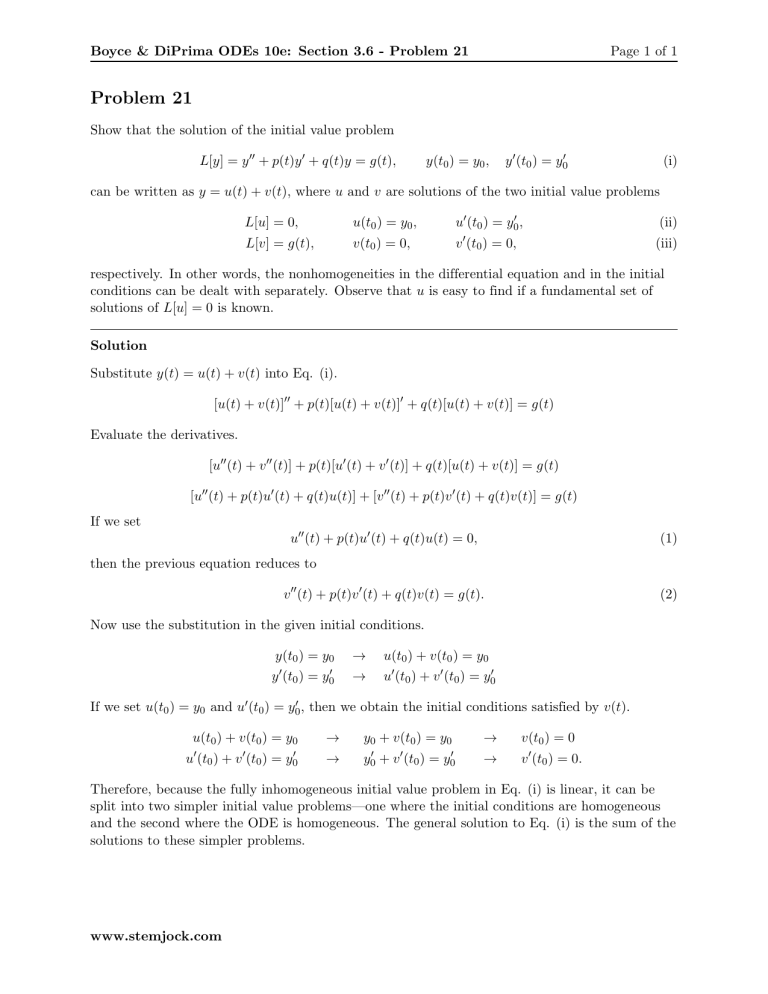
Boyce & DiPrima ODEs 10e: Section 3.6 - Problem 21 Page 1 of 1 Problem 21 Show that the solution of the initial value problem L[y] = y 00 + p(t)y 0 + q(t)y = g(t), y(t0 ) = y0 , y 0 (t0 ) = y00 (i) can be written as y = u(t) + v(t), where u and v are solutions of the two initial value problems L[u] = 0, u0 (t0 ) = y00 , u(t0 ) = y0 , L[v] = g(t), 0 v(t0 ) = 0, v (t0 ) = 0, (ii) (iii) respectively. In other words, the nonhomogeneities in the differential equation and in the initial conditions can be dealt with separately. Observe that u is easy to find if a fundamental set of solutions of L[u] = 0 is known. Solution Substitute y(t) = u(t) + v(t) into Eq. (i). [u(t) + v(t)]00 + p(t)[u(t) + v(t)]0 + q(t)[u(t) + v(t)] = g(t) Evaluate the derivatives. [u00 (t) + v 00 (t)] + p(t)[u0 (t) + v 0 (t)] + q(t)[u(t) + v(t)] = g(t) [u00 (t) + p(t)u0 (t) + q(t)u(t)] + [v 00 (t) + p(t)v 0 (t) + q(t)v(t)] = g(t) If we set u00 (t) + p(t)u0 (t) + q(t)u(t) = 0, (1) then the previous equation reduces to v 00 (t) + p(t)v 0 (t) + q(t)v(t) = g(t). (2) Now use the substitution in the given initial conditions. y(t0 ) = y0 0 y (t0 ) = y00 → u(t0 ) + v(t0 ) = y0 → u0 (t0 ) + v 0 (t0 ) = y00 If we set u(t0 ) = y0 and u0 (t0 ) = y00 , then we obtain the initial conditions satisfied by v(t). u(t0 ) + v(t0 ) = y0 0 0 u (t0 ) + v (t0 ) = y00 → y0 + v(t0 ) = y0 → v(t0 ) = 0 → y00 → v 0 (t0 ) = 0. 0 + v (t0 ) = y00 Therefore, because the fully inhomogeneous initial value problem in Eq. (i) is linear, it can be split into two simpler initial value problems—one where the initial conditions are homogeneous and the second where the ODE is homogeneous. The general solution to Eq. (i) is the sum of the solutions to these simpler problems. www.stemjock.com
